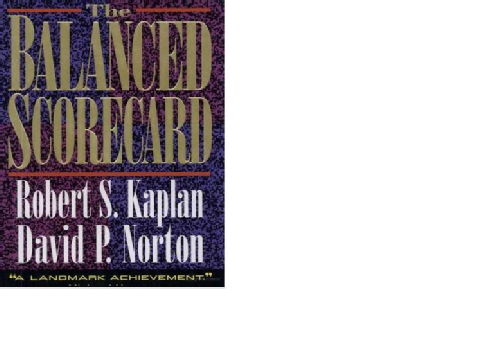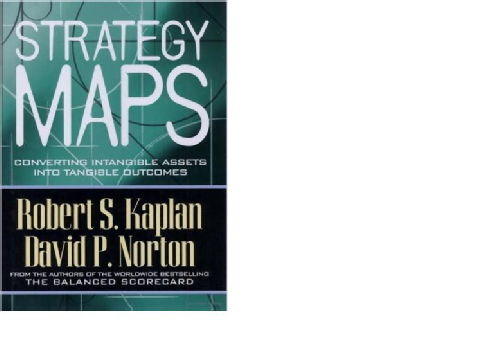All 5 entries tagged Book
View all 629 entries tagged Book on Warwick Blogs | View entries tagged Book at Technorati | There are no images tagged Book on this blog
March 18, 2015
Benefits and challenges of ERP in management control
- Title:
- ERP in action—Challenges and benefits for management control in SME context.
- Rating:
- Not rated
This article is about benefits and challenges for management control when implementing an ERP system.
Benefits:
1. Top management:
(1) Enabling the vision: ERP makes it possible to implement new strategy. Growing and globalizing business needs new kind of control systems.
(2) Transparency: ERP system is a good control tool. In particular it makes business transactions transparent.
(3) Routine tasks: Top management perceives that ERP system works well in routine tasks, but only negative things will be discussed openly.
2. Administration:
(1) Transparency/bookkeeping: Accounting and book keeping work well. Monthly profit and loss statements will be gathered very quickly.
(2) Possibilities: In ERP systems are numerous functions (some not utilized).
(3) One system: Only one system. Knowledge and support will be focused on the ERP system. There is no need to support other systems.
3. Production:
(1) Transparency/bookkeeping: Accounting and book keeping work well. Monthly profit and loss statements will be gathered very quickly.
(2)Routine tasks: Basic and simple things can be done by ERP. ERP works if things happen as predefined in the system.
Challenges:
1.Top management:
Making entries: ERP is based on processes, but employees do not know what the processes are. Employees do not understand why it is required to make entries in processes. Too many steps included in the entry process. It takes time and generates incorrect entries. Employees perceive that making entries is not part of their job. If supervisors use the ERP reluctantly, shop floor workers follow their lead.
2. Administration:
(1) Making entries: It is not possible to make correct entries. Such problems occur when there are different kinds of
machines or production lines than predefined in ERP system. Employees will take a short cut and in this way speed up their tasks.
(2) Personnel resources: Key person leaves the company. In that situation knowledge is lost away from the company. There is time to utilize only the basic functions of the ERP, even if people perceive that there are a lot of other utilizing possibilities. There are no experienced people to use ERP. There is a lot of data for different kind of management control purposes, but there are no people to do that.
(3) Technical problems: ERP system breaks down or it is very slow.
3. Production:
(1) Making entries: Employees do not know what processes are and how they relate to the whole. Employees do not understand why it is required to make entries. Rapid changes in production. Production lines are required to changes (by the customers), but there is no time and no personnel resources to make these changes into ERP system. Too many phases included in the entry process. It takes time and generates incorrect entries. The ERP system is very complex. Making entries is required to be done in many different screens. Complex system takes time away from physical production, which cause that people do not want to use the system. Mistakes occur (incorrect entries) and it takes lot of time to find and correct these incorrect entries. People who have only basic skills to use ERP, cannot solve this kind of problems.
(2) Technical problems: ERP system breaks down. Data which is required in production cannot be obtained from the ERP system.
(3) Standard nature of ERP: There are predefined processes in ERP system, but production is many times unpredictable: machines will break down, production lines will be changed, and the output of the machines is many times not known.
(4) Lost focus: ERP will attract all the focus away from development of production. Resources will be used to develop the ERP system and ERP processes, which is time away from the development of production.
Reference: Teittinen, H., Pellinen, J., & Järvenpää, M. (2013). ERP in action—Challenges and benefits for management control in SME context.International Journal of Accounting Information Systems, 14(4), 278-296.
July 09, 2010
Why Enterprise Resource Planning Projects Fail?
- Title:
- Enterprise Systems For Management
- Rating:
- Not rated
Why Enterprise Resource Planning (ERP) Projects Fail?
Adopting an ERP system has become a norm in most multinational industries in today’s competitive market. Organisations have recognized the potential benefits of implementing an ERP system so as to gain competitive advantage and improve their business strategy. Nevertheless ERP project has an infamous reputation of failure as most projects become over budget and delayed.
Umble et al (2003) based on their research identified various reasons why ERP implementation project fail. They argued that the main reasons for failure can be grouped into ten categories as listed below:
1. Obscure Strategic goals
2. Top management is not committed to the system
3. Implementation project management is poor
4. Lack of organisations commitment to change
5. Incompetent implementation team not selected
6. Inadequate education and training
7. Data validation is inaccurate
8. No performance measures
9. Improper resolution of Multi-site issues
10. Technical difficulties
Umble et al (2003) further reviewed the case of an ERP implementation at Huck International Inc, a design and manufacturing company. They identified that though the company successfully implementation an ERP system and achieved some of their benefits, they underwent various challenges such as; lack of complete top management and implementation team involvement during the implementation phase of the project. This resulted in the company going over budget during the course of the project and exceeding their initial time plan.
An organisation that plans to implement an ERP system needs to understand its complexity and consider all possible factors that determines its successful implementation. Careful analysis and planning must be carried out at all the different implementation phases (before, during and after implementation) so as to avoid a project failure.
Various other real life case studies of ERP implementation that shows that factors above influence the success and failure of ERP projecthas been reviewed in Motiwalla & Thompson's book referenced below.
Book: Motiwalla, L. and Thompson J. (2009). Enterprise Systems For Management. New Jersey: Pearson Prentice Hall.
Article: Umble, E., Haft, R., and Umble, M. (2003). Enterprise resource Planning: Implementation procedure and critical succes factors. European Journal of Operation Research, 241-257.
Further Comments are welcomed!
May 06, 2010
Recommendation the useful books of Balanced Scorecard and Strategy Map Readiness.
I would like to recommend useful books to help you more clearly understand both Balanced Scorecard and Strategy Map Readiness.
1. The Balanced Scorecard: Translating strategy into action by Robert S. Kaplan and David P. Norton.

This book explains in-deep details how to measure business strategy of Balanced Scorecard which are Financial, customer, internal-business-process and Learning and Growth Perspective.
I hope this book can help you more understand how to draw the strategy map.
You can read this book online follow the link below:
http://books.google.co.uk/books?id=mRHC5kHXczEC&printsec=frontcover&source=gbs_navlinks_s#v=onepage&q&f=false
2. Strategy maps: converting intangible assets into tangible outcomes by Robert S. Kaplan and David P. Norton.

This book can help you understand how to transfer the set of strategic processes into Strategic Readiness Map for Information Capital.It has a chapter of Information Capital Readiness (Chapter 9) which provides brief descriptions of Information Capital categories such as Transformational Application, analytic Application and so on.
You can read this book online follow the link below:
http://books.google.co.uk/books?id=vCnhFu52rosC&printsec=frontcover&dq=strategy+maps+converting+intangible+assets+into+tangible+outcomes&cd=1#v=onepage&q&f=false
P.s. Some pages cannot be read due to the copyright. But there are some books in our Library.
I hope these books will help you can do PMA easier.
Good Luck
Chutima Thairungroj
March 20, 2010
Essentials of Business Processes and Information Systems
- Title:
- Rating:

If you dont have much business experience and would like to see how some common business processes are carried out and how ERP supports this then I can recommend this book. It is co-authored by Jeffrey Word who also co-authored SAP NetWeaver for Dummies.
It has good illustrations and is clearly written with support from SAP.
SAP NetWeaver for Dummies
- Title:
- Rating:

A very approachable book as you would expect from this genre. I wouldn't suggest you read this first but after you have studied the course I think you will find it provides a good foundation for understanding more sophistciated issues with SAP NetWeaver.
When I first got it over a year ago I only skimmed it. My initial reaction was one of disappointment becasue I was looking for technical details. The book doesn't contain any programming examples of advice, for this you will need to find something else (if you are that way inclined).
When I re-read it this weekend having completed writing the couse notes I went back and edited my notes and I hope this has resulted in more approachable material.



 Please wait - comments are loading
Please wait - comments are loading
 Loading…
Loading…



